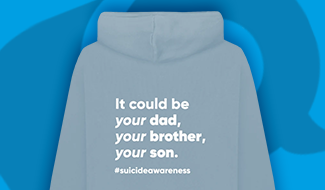When you think about court, you may conjure up the scenes that you see on television – a large imposing room with barristers and Judges in wigs. Thankfully, family court is much different. You will find yourself in “chambers” which ultimately means you are in the Judge’s room. You’ll be with a Judge, the opposing party and their legal representative (if they have instructed a legal representative). Nobody will be wearing any wigs or gowns. If you are representing yourself, you are called a “litigant in-person”. Although the Judge is not there to advise you, s/he will explain the process to you as the hearing continues.
Judges are not there to be on anyone’s side. They are there to progress the application and make a decision based on the facts of the case if the parties cannot agree matters.
Be Prepared
Firstly, make sure you know where the court is and how you are going to get there (car, bus, train etc). There are numerous occasions where parties miss hearings or arrive late because there was traffic or they couldn’t find the court. You don’t want to find yourself running late – you’ll be anxious enough as it is, without any further anxiety about not getting there on time.
Be Organised
Whether you’ve made the application or on the receiving end of the application, you’ll want the Judge to know your side of the story. Maybe you have a list of dates of incidents, text messages or other documents. Whatever you have, don’t come to court with them in plastic bags (as quite a few people do) put them in a folder and keep them clean and in order. The amount of people who will hand over documents that are creased or, worse still, covered in coffee stains is quite high – it doesn’t give a good impression.
What To Wear
Remember that you are in court and although you don’t have to be in a 3-piece suit, you should be smart. You will not be allowed to wear hats in the courtroom. There are many times when people wear jeans and t-shirt, however, if you want to try and establish a more formal persona then wear something smart.
Before The Hearing
When you arrive at court, take a breath and keep calm. Find the usher’s point and tell them what case you are on. If the other party has legal representation, then they may want to speak to you before the hearing. They are not there to trick you or to get you to say anything you don’t want to, but they will probably just ask your position and try to clarify any issues.
The Hearing
The first time that you attend court is usually the first hearing within any application made by you or the other party. This is not a time for people to cross examine each other. It is a time for the court to establish what the disputes are in the case. Maybe it’s about a change of name for your child or one parent asking for more contact. During the hearing, the Judge will let you know what you should do next to progress the case (such as filing witness statements) and make directions.
If you have made the application, the Judge will speak to you first, whereas if you are on the receiving end of an application you will be spoken to second.
If it is a male Judge, call him “sir” and if female, call her “ma’am”.
Judges are used to dealing with litigants in person and therefore will explain the process to you. If you are unsure about what the Judge is saying then simply ask. Judges are not there to be on anyone’s side. They are there to progress the application and make a decision based on the facts of the case if the parties cannot agree matters.
As a general rule, you can’t bring other people in to the court. Therefore, if a friend or family member has come along to offer you support then they shouldn’t enter the court room. However, if you do feel as though you need some support then you will need to seek agreement from the other party and also ask the Judge when you go in to the court room.
Privacy
You have to remember that family hearings are private. This means that you cannot inform others of what took place and you can’t show friends the court orders. If you do, you will be committing contempt of court. It is important that you don’t go on social media giving out information and letting everyone know your thoughts on the other party! There are many cases where people have printed off damning Facebook entries – it certainly won’t help your case if they are given to the Judge.
Posted on June 20, 2019














